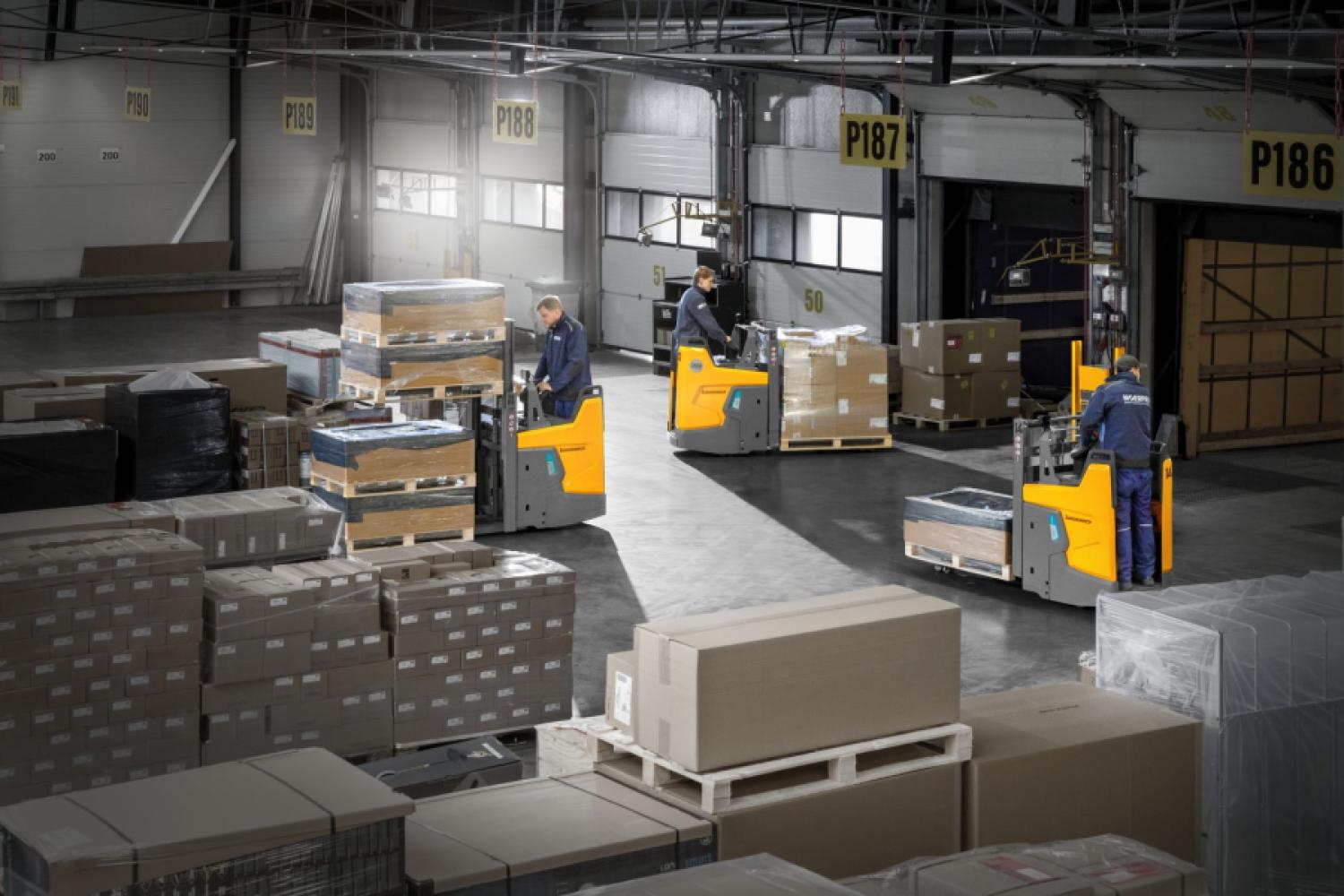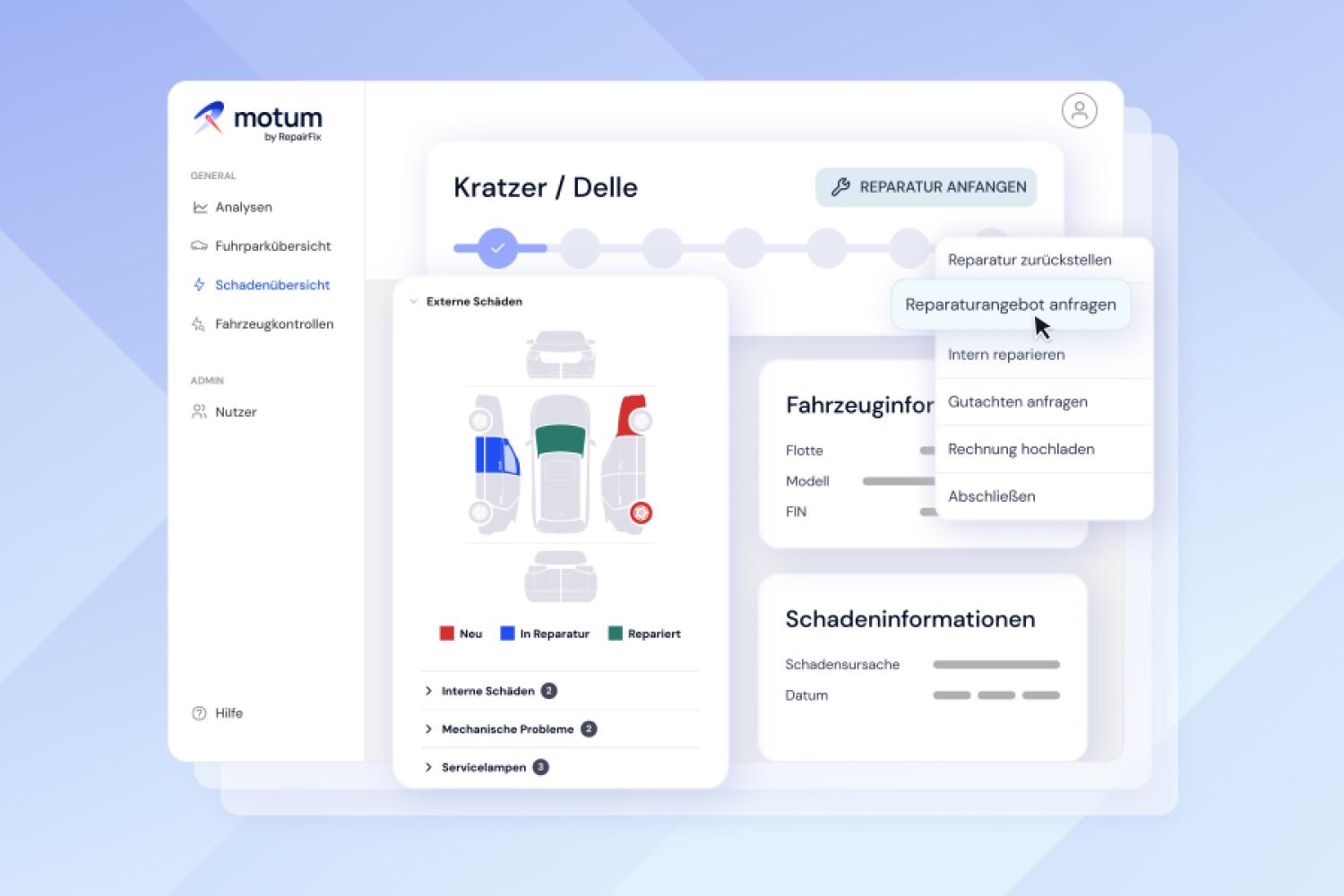The American software company Blue Yonder presented the results of its first "Supply Chain Compass" on June 17, which aims to highlight the strategic focuses of almost 700 internationally active supply chain executives. According to the study results, the focuses include the implementation of new technologies (51 percent), the optimization of efficiency and productivity (40 percent), and the building of more resilient supply chains (29 percent). According to Blue Yonder, the three-part report reflects the opinions of executives active in supply chain management in North America and Europe in the fields of manufacturing, retail, and logistics.
Implementing strategic goals in the next three years requires specific actions. Better demand planning (46 percent) and the quick availability and analysis of performance (46 percent) were the most important measures for the respondents, followed by investments in solutions for better tracking and more transparency (45 percent), digital software transformation and innovation (41 percent), and the management of supply chain costs (33 percent). To remain resilient and competitive in an unstable market environment, companies should implement these measures both internally and externally, according to the provider.
Artificial Intelligence: Disruptive Potential, Slowed Implementation
Leaders in all sectors are currently confronted with the transformative
power of new technologies. 74 percent of the respondents in the Blue Yonder survey believe that AI is already changing the way their company operates. Additionally, 82 percent of executives agreed that outdated technologies impair the potential of their supply chains, and for 51 percent, the implementation of new supply chain technologies is a top priority in the next three years according to Blue Yonder. 89 percent of decision-makers have allocated a fixed budget for this purpose, with 61 percent of respondents stating it ranges between one and ten million US dollars over the next five years.
According to the study, generative AI is still inadequately implemented compared to traditional AI, mainly used for predictions and automation. The majority of respondents (83 percent) use or are implementing AI-powered automation, 78 percent employ machine learning and predictive AI. In contrast, only 36 percent use or are implementing generative AI.
Nevertheless, generative AI is becoming more important for respondents to improve the reliability of supply chains and achieve sustainability goals. One in four companies reported implementing this technology. Only 16 percent have no current plans to implement generative AI solutions.
Decision-makers see the following primary challenges in implementing generative AI:
- Putting people first: Of the companies that have no plans to implement generative AI, 51 percent stated they rely on people rather than cutting-edge technologies.
- High implementation costs: Companies with a technology budget of less than 500,000 US dollars for the next one to five years are significantly less likely to consider implementing generative AI.
- Different priorities: Companies that do not currently employ generative AI are not necessarily lagging—they focus on other strategic initiatives, such as automating inventory management to increase their efficiency.
Companies focusing on transportation, order management, as well as execution and fulfillment, are much more likely to implement generative AI (46 percent), whereas only 16 percent of logistics companies plan on implementing it.
Sustainability as a Central Factor
Sustainable supply chains were the top priority for the surveyed executives. "Sustainability" was also the most frequently mentioned term used to describe the future of their supply chains. Nearly two-thirds (68 percent) of the executives stated that supply chain operators must significantly contribute to solving sustainability issues such as resource waste or climate change. Companies that chose sustainability as one of their top three strategic priorities were notably more optimistic about their business results.
Targeted actions to
promote sustainability were overall a high priority for the surveyed executives. However, many still do not utilize technological solutions:
- The biggest sustainability potentials in supply chains, according to survey participants, involve capital investments that are often associated with costs: sustainable packaging (37 percent), waste reduction in manufacturing (30 percent), recycling (28 percent), renewable energy sources/green fuels (28 percent), and lower emissions from warehouses and facilities (27 percent).
- Few companies have so far used technology-based means to implement sustainability: emission data analytics (22 percent), networking connections for efficient shipping (17 percent), waste reduction (13 percent), and improved return handling (twelve percent).
- Some see a clear link between sustainability, technology, and efficiency: 26 percent believe that predictive technology solutions can improve efficiency and thus sustainability efforts.
The linking of technology and sustainability holds immense opportunities. Those respondents, who cited sustainability as one of their three main strategic priorities, are at the forefront of technology and AI implementation: 94 percent stated that seamless data connectivity is fundamental to their company's success (compared to 85 percent overall), 80 percent said AI is already transforming their work (compared to 74 percent overall), and 61 percent reported that they are currently considering the adoption






